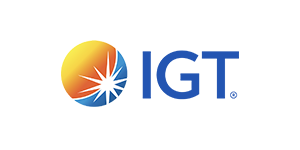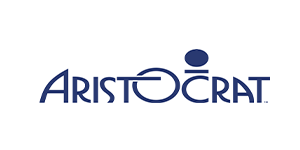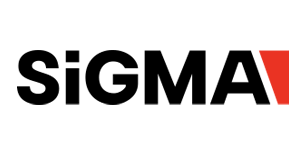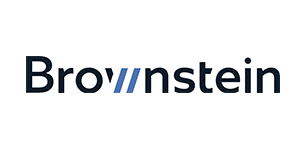- Home
- About IAGA
- Events
- Membership
- Sponsorship
|
White Paper Series: the White Paper, one year on It has been one year since the long-awaited White Paper was published on 27 April 2023 – dubbed by Andrew Rhodes, Chief Executive of the Gambling Commission, as a “key moment” for the industry. The White Paper set out 62 specific policy proposals for the Government, the Gambling Commission, and the gambling industry to take forward in order to implement the reform of gambling regulation. A lot has changed in the last 12 months, with the opening and closing of several consultations, and Government will begin to implement the main proposals from August 2024. The journey so far… The White Paper was divided into 6 chapters, each setting out a number of proposals. We summarise below the headline proposals within each chapter and the progress made to date. Chapter 1: Online protections – players and products Headline proposals included:
DCMS published its response to its consultation on default stake limits on 23 February 2024, which confirmed the following stake limits would be introduced from September 2024 following secondary legislation:
There will be a minimum six-week transition period for operators to introduce a £5 stake limit for all customers; followed by a further six weeks for the development of any necessary technical solutions before the lower stake limit of £2 for young adults aged 18 to 24 is introduced. Please see our previous blog for further information.
This is without doubt the most controversial White Paper proposal. The Gambling Commission opened its consultation on 26 July 2023, proposing (1) light-touch financial vulnerability checks using publicly available data at £125 net loss within a rolling 30-day period or £500 net loss within a rolling 365-day period; and (2) enhanced financial risk assessments at £1,000 net loss within a rolling 24 hours or £2,000 net loss within a rolling 90-day period. The proposals sparked great debate within the industry, resulting in significant pressure on Government and the Gambling Commission, particularly from the horseracing industry. On 22 February 2024, the Gambling Commission published a blog updating the industry on implementation plans for the proposed financial risk checks. The plans included its intention to implement the proposals via a pilot scheme for enhanced risk checks to enable the Gambling Commission to test the details of data-sharing in practice. In addition, the Gambling Commission confirmed they will initially come into force at a higher threshold, before moving to a lower threshold later in the year. The blog came four days before UK Parliament debated the petition Stop the implementation of betting affordability/financial risk checks, reflecting the mounting pressure Government and the regulator were facing. On 1 May 2024, the Gambling Commission published its consultation response, confirming the introduction of light-touch financial vulnerability checks, alongside a pilot of enhanced frictionless financial risk assessments, with the latter only being rolled out if the pilot proves the checks can be frictionless. In summary, the following will be implemented:
On the same day, the Betting and Gaming Council (“BGC”) published a new Industry Voluntary Code on Customer Checks and Documentation Requests Based on Spend (“Industry Voluntary SR Code”), which will operate as a voluntary interim code to provide consistency across the regulated sector to social responsibility compliance until the financial vulnerability checks and risk assessments are brought into force. The Industry Voluntary SR Code sets out what actions a BGC member must take when customers wish to make net deposits of:
It is intended that a supplementary BGC code on anti-money laundering checks will also be published to provide similar consistency in respect of anti-money laundering measures. Please see our previous blog for further information.
The Gambling Commission’s consultation closed on 18 October 2023 and the response was published on 1 May 2024. The changes extend requirements that already apply to slots to other online products. In particular, they ban speed features such as “turbos” or “slam stops”, game cycles of less than 5 seconds on casino products (N.B. the requirement for slots is 2.5 seconds), autoplay functions, celebrations of returns less than or equal to the stake, and the facilitation of playing multiple simultaneous products. The new remote games design rules come into force on 17 January 2025. Please see our previous blog for further information.
The aim of the proposals is to ensure customers maintain awareness and control over their gambling. The Gambling Commission’s consultation closed on 21 February 2024 and sought views on minimising friction in the customer journey when choosing customer-led tools, and on a cross-operator deposit limit. At the time of writing, a response is awaited. Please see our previous blog for further information. Chapter 2: Marketing and advertising Headline proposals included:
The Gambling Commission’s consultation closed on 18 October 2023 and the response was published on 1 May 2024. Online gambling business will need to provide customers with options to opt-in to the product type (casino, betting and bingo) they are interested in, and the channels through which they wish to receive marketing. Following the consultation, the Commission removed lottery as a product type (and the land-based sector has now been excluded from the requirement) and removed post as a channel for marketing. The new rules come into force on 17 January 2025. However, in order to make customers aware of the preference choices, and so they are not hidden in an email, customers will only be required to re-confirm their marketing preferences the first time they log in after the implementation date. Until then, marketing can continue based on the customer’s prior marketing preferences. Please see our previous blog for further information.
Proposals include banning or limiting the use of wagering requirements in promotional offers, and banning the mixing of product types. The Gambling Commission’s consultation closed on 21 February 2024. At the time of writing, a response is awaited.
On 13 March 2024, Stuart Andrews MP announced that the code of conduct has been finalised and binds domestic sports governing bodies to four core principles: (1) reinvestment into sport, (2) maintaining sport integrity, (3) protecting children and other vulnerable people, and (4) ensuring socially responsible promotion. Bespoke, sport-specific codes are also being designed by individual governing bodies, and will be published and implemented “in due course”.
The DHSC has initialised a review of the evidence around effective public health-led messaging. At the time of writing, a response is awaited. Chapter 3: The Gambling Commission’s powers and resources
The statutory levy will fund research, education and treatment of gambling harms and is one of the pillar reforms within the White Paper, replacing the current voluntary system. The statutory levy will provide a sustainable and consistent income stream to support the treatment of gambling-related harms, and create a more equitable approach. DCMS’ consultation closed on 14 December 2023. At the time of writing, a response is awaited. Please see our previous blog for further information. Government confirmed in its response to DCMS’s Second Report (published 19 April 2024) that it will be publishing a response “in the coming weeks”.
The Government will introduce new powers for the Gambling Commission so it can more effectively take action against the illegal online gambling market through provisions set out in the Home Office’s Criminal Justice Bill. The Bill was introduced in the House of Commons on 14 November 2023 and is currently at Commons Report stage. In the meantime, a key commitment in the Gambling Commission’s three year corporate strategy, published on 8 April 2024, is to increase investment, resource and capacity to tackle illegal gambling.
DCMS’ consultation is awaited. It is expected that the revised funding system will enable the Gambling Commission to adjust its fees on an annual basis where necessary, increasing or reducing fees as appropriate. Chapter 4: Dispute resolution and customer redress Headline proposal:
The White Paper proposed the formation of an independent non-statutory ombudsman to improve consumer protection and ensure fairness for consumers relating to social responsibility complaints. The Gambling Commission expected the Gambling Ombudsman to be accepting complaints within a year of publication of the White Paper, however appointment of a Gambling Ombudsman is yet to take place and seems unlikely to happen any time soon. Please see our blog for further information. Chapter 5: Children and young adults The headline proposals relating to children and young adults tie into the proposals in Chapter 1, with separate thresholds (for example) being applied to children and young adults. Chapter 6: Land-based gambling Headline proposals included:
The Gambling Commission’s consultation closed on 18 October 2023 and the response was published on 1 May 2024. New rules will come into force on 30 August 2024 requiring smaller land-based gambling licensees to carry out age verification test purchasing, extending the existing requirements in place for larger land-based gambling licensees. The LCCP will also be updated to confirm that “Think 25” is best practice for land-based premises, replacing “Think 21”. Please see our previous blog for further information.
The DCMS consultation regarding the proposals closed on 4 October 2023. The proposal to remove the current prohibition of cashless payments on gaming machines aims to bring the land-based sector into the digital age. At the time of writing, a consultation response is awaited. Please see our previous blog for further information.
The DCMS consultation regarding the proposals closed on 4 October 2023. The proposals aim to address inconsistencies and level the playing field between land-based and online operators, and to allow operators greater commercial flexibility. At the time of writing, a response to the consultation is awaited. Government confirmed in its response to DCMS’s Second Report (published 19 April 2024) that it will be publishing a response “in the coming weeks”. The word count of this article has been reduced for the IAGA website. If you would like to read the full version, it is available here: White Paper Series: the White Paper, one year on
|
















